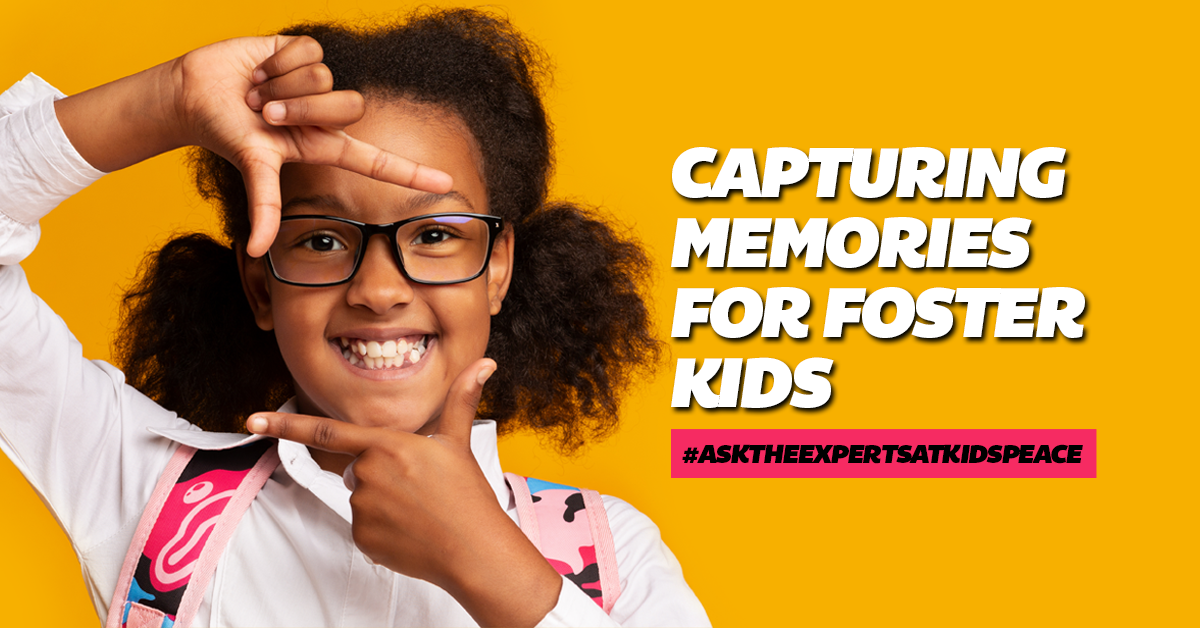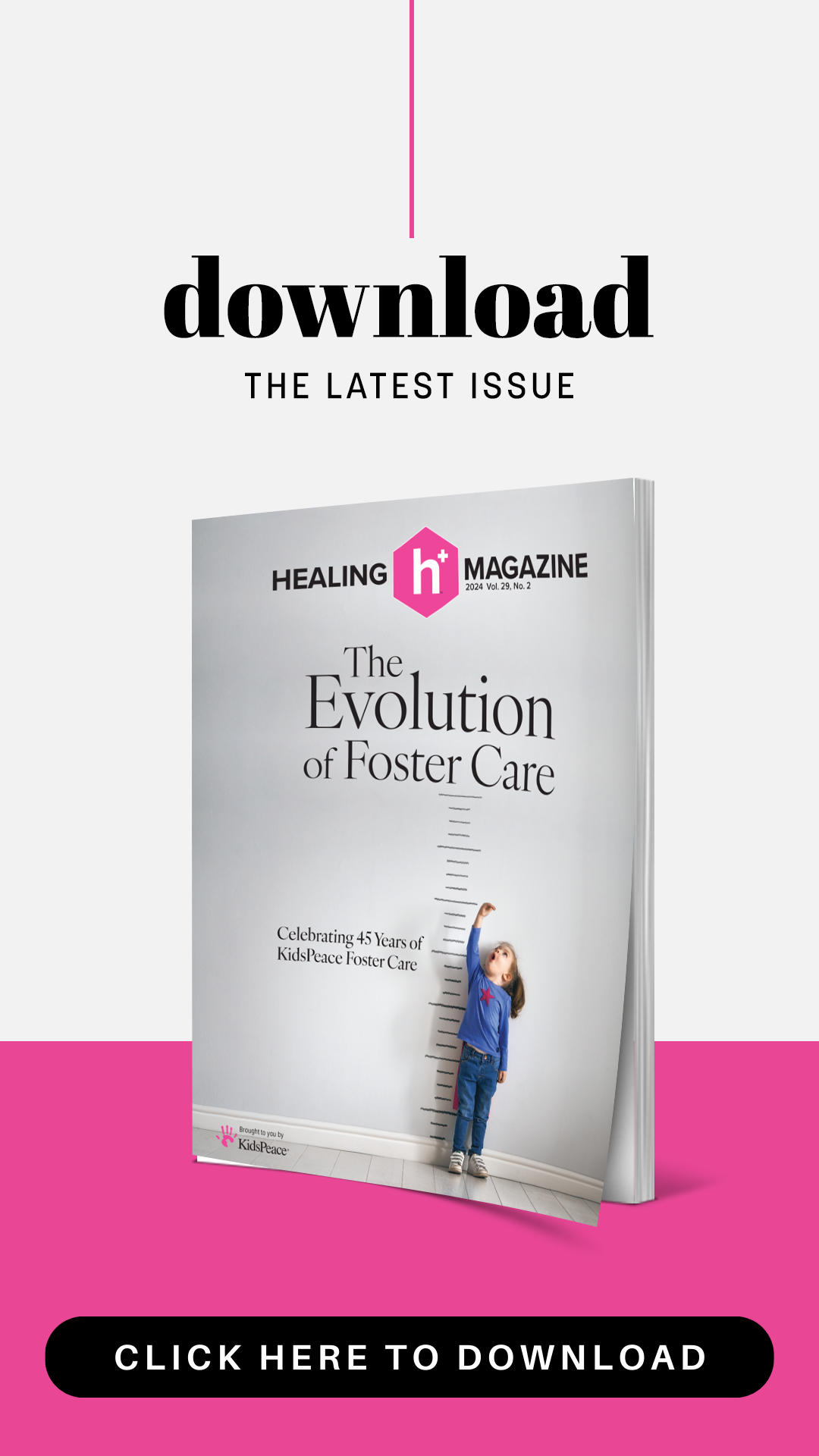
The KidsPeace Foster Care office in Merrillville, IN was awarded a 2020 KidsPeace Foundation Healing Award for its efforts to help foster parents create “Lifebooks” for kids in their care. “Ask the Experts” asked Mary Edwards, a family consultant at Merrillville, to explain why Lifebooks are important for the emotional health of foster children, and to offer some creative ideas parents can use to make their child’s Lifebook more meaningful.
Imagine sitting down to your computer to set up your new, password protected account. As you are setting up the password, you are prompted to select two questions to use in case you get locked out of your account. “What is the name of the street where you grew up?” Hmmm…I don’t know. I’ll just pick another question. “What is your father’s middle name?” Well, I don’t know that either…next. “What is the name of your high school?” Which one should I pick? I went to four different high schools and don’t even remember the name of two of them because I was only there for a couple months. “What is the name of your favorite pet?” Oh, that is easy! It is definitely the dog from the Smith’s house! His name was Brodey, or was it Bodie. No, that doesn’t quite sound right; it was Bowser… or maybe Bruiser. Ugh!! I don’t know this answer either!
How frustrating and disheartening! Now, think about yourself. How easy is it for you to answer those questions? Personally, I could rattle off answers to those without hesitation. But foster youth do not have the luxury to just have this information off the top of their head, and often they don’t even have somewhere to go to find out the information.
Youth in care often have large gaps of information about their personal history because adults did not provide that information in a single place that would follow the child wherever they went. Pictures, memorabilia, and information do not always make the move with the child when they leave one home and go to the next. A Lifebook is designed to fill in those gaps and answer questions for our kids, even when they are no longer in our homes; they allow the child to remember where they came from and reflect upon their time in foster care.
Ideally, a Lifebook would start with information about the child and their biological parents. It is possible to ask your assigned case manager from your local county to obtain information for the Lifebook and pictures as well. If your foster child is visiting with the parents, ask the visitation supervisor to take a picture of the parent(s) and the child together to put in their Lifebook. Most workers would be more than happy to comply with this request. If possible, try to obtain baby pictures of the child in your care to include these as well.
Include information and a picture of your family, the date the child came to your home, the location of your home (or at least the city and state), the names of everyone in your home (including pets), the school they attended, activities they enjoyed, and names of service providers who work with the child. Include fun activities, or things that you did as a family. Did you celebrate major holidays together? Include pictures and information regarding these big events – Kindergarten graduation, pumpkin carving, the Christmas tree, anything of major significance to your child.
If you know a transition is coming, put as much information about that in the book as possible. If a child is being reunified with their parents, include that information. If they are transitioning to a pre-adoptive home, obtain as much information as possible about that new home. Include dates of visits to that home, information the child has shared with you about that home. What is the child looking forward to doing when they get to the new home? Are they looking forward to eating their mother’s lasagna? Or having their own room in a pre-adoptive home? Include that information for them to reflect upon in the future!
Most of all, have fun creating the Lifebook for your child! If the youth is creative, or old enough to have input, ask them to help create it. It can be quite fun to review time spent together and get the other person’s perspective on a situation. The other person may remember something that you had forgotten; you will also be able to see what the youth in your care has found impactful on them.
Mary Edwards, MSML, is a family consultant with KidsPeace FCCP’s office in Merrillville, IN



